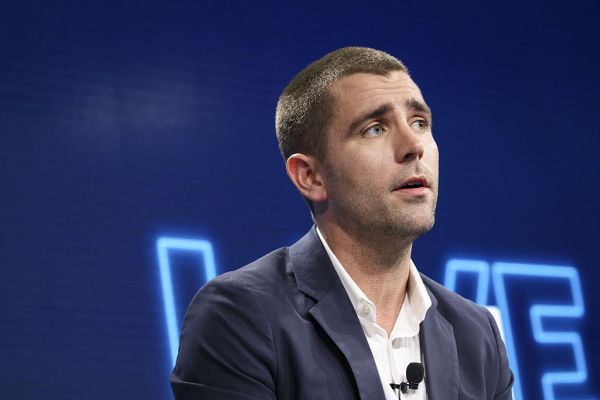After a very high-profile departure and a year away from the company, Facebook’s former chief product officer Chris Cox will return to his long-held position with the company.
Cox shared the news Thursday in a Facebook post with a photo of his company badge. Elaborating on his return to Facebook, Cox explained that the unique national and global climate of 2020 influenced his decision, particularly the coronavirus pandemic, its subsequent economic devastation and the nation’s current focus on “a reckoning of racial injustice.”
“Like many of you, I’ve been thinking hard about what I can do for our families and communities today, and for the world our children will live in tomorrow,” Cox wrote.
“Facebook and our products have never been more relevant to our future. It’s the place I know best, it’s a place I’ve helped to build, and it’s the best place for me to roll up my sleeves and dig in to help.”
Cox has played an important role in shaping Facebook for years, both in terms of the products he broadly oversaw and in terms of company culture. One of Facebook’s earliest engineers, Cox came on board 15 years ago and in 2008 began working on Facebook’s product team. He moved into the chief product officer role in 2014, staying close to Mark Zuckerberg throughout his tenure.
Notably, Cox criticized Facebook’s hands-off approach to political advertising late last year, a decision the company made after his departure. Cox, who also expressed his displeasure with Trump at the time, suggested that fact-checking was necessary for political ads, though it needed to be nonpartisan in its execution. In his time away from Facebook, Cox worked as an advisor for Acronym, a nonprofit working on digital campaign tools for Democrats.
Facebook’s choice to not fact-check its political ads was one of a recent string of decisions that appeared designed to align the company more favorably with its conservative critics. In recent comments, Facebook’s former chief technology officer observed that the company is “afraid of angering Republicans” in crafting platform policies like those governing political ads.
The same day as Cox’s return announcement, Facebook responded to criticism from Joe Biden’s campaign that the company placates President Trump by citing Trump’s own executive order attacking moderation decisions by social media companies in defense.
Cox’s decision to leave last year was seen as a heavy blow for the company, which has been plagued by a stream of high-profile departures in recent years. Cox’s return is good news for Facebook, which is currently in the midst of a rare period of open dissent over a post from the president that threatened protesters after Minneapolis police killed George Floyd, an unarmed Black man.
Cox notes that in following the company over the last year in his absence he was “encouraged by progress on so many of the big issues,” though it’s not immediately clear what issues he was referring to, particularly in light of the company’s fresh internal controversy.
“In the past month the world has grown more chaotic and unstable, which has only given me more resolve to help out,” Cox said. “Our most important decisions and products are ahead of us.”
With the 2020 U.S. election looming and Facebook’s role in public and political discourse more central than ever, he’s likely right about that.
